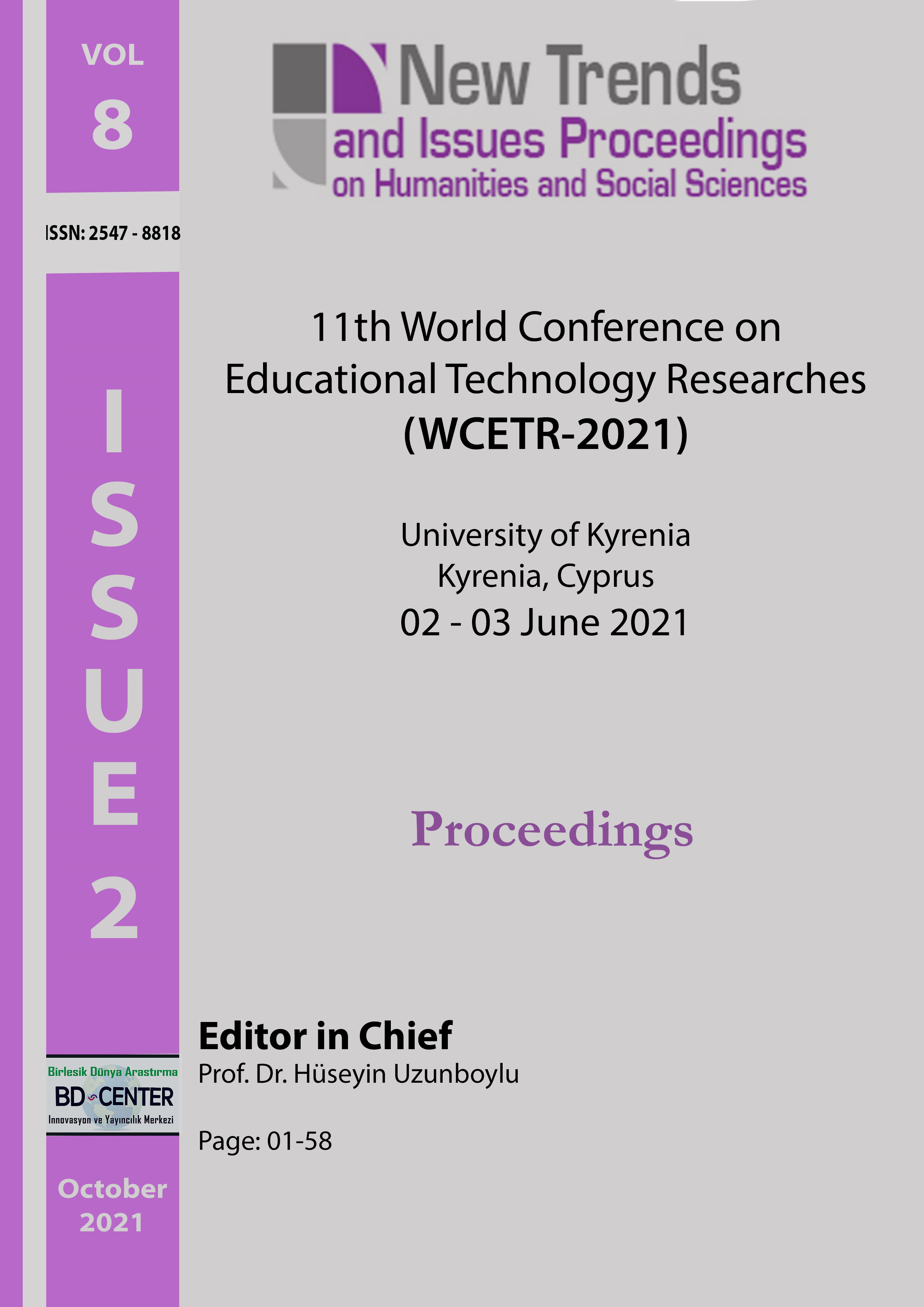Analysis of the opinions of academists in the field on the applicability of distance education in preschool education
Main Article Content
Abstract
The goal of this study is to examine the views of academicians working in the preschool teaching department on the applicability of the distance education model in preschool education. The study was carried out in a ‘phenomenological’ pattern, which is a qualitative research pattern. The research group comprised eight academicians working in preschool teaching departments of state/foundation universities in Istanbul during the 2020–2021 academic period. The study results indicate that participants expressed more limitations than positive aspects of applying the distance education model in preschool education. It is observed that participants agree that children will face some limitations in socio-emotional development fields, but might be supported in the cognitive development field when the distance education model is applied in preschool education. It is also understood that participants do not have a common view on language development, motor development and self-care skills. Inner-service training for inexperienced teachers on distance education to inform them about distance education practices in preschool education is suggested.
Keywords: Preschool education, distance education, academician, child, opinions.
Downloads
Article Details

This work is licensed under a Creative Commons Attribution 4.0 International License.
Authors who publish with this journal agree to the following terms:- Authors retain copyright and grant the journal right of first publication with the work simultaneously licensed under a Creative Commons Attribution License that allows others to share the work with an acknowledgement of the work's authorship and initial publication in this journal.
- Authors are able to enter into separate, additional contractual arrangements for the non-exclusive distribution of the journal's published version of the work (e.g., post it to an institutional repository or publish it in a book), with an acknowledgement of its initial publication in this journal.
- Authors are permitted and encouraged to post their work online (e.g., in institutional repositories or on their website) prior to and during the submission process, as it can lead to productive exchanges, as well as earlier and greater citation of published work (See The Effect of Open Access).
